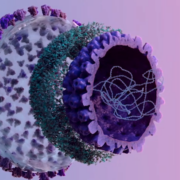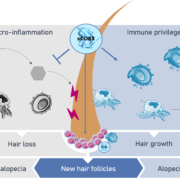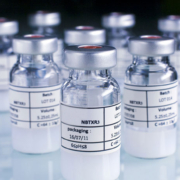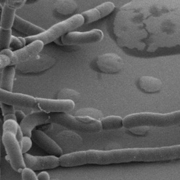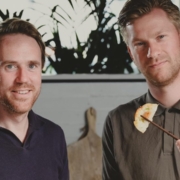Paris-based gene therapy vector specialist EG 427 SAS has closed a Series A financing at €18m raising additional €5m in the final closing.
ADVERTISEMENT
Conventional meat production contributes to 15% of the global greenhouse gas emissions, high energy consumption and land use change. Belgian Paleo NV produces alternative protein from myoglobins of different species.
Toulouse-based Flash Therapeutics has appointed Jerome Bedier as its new President.
Mallia Therapeutics GmbH has raised seed money to accelerate preclinical research and start Phase I testing of a baldness cure with unique MOA named soluble CD83.
German CRO Evotec SE enters licence agreement Bristol Myers Squibb within its neuroscience partnership providing US$40m upfront, milestones and double-digit sales royalities.
Paris-based Nanobiotix SA has signed a potential US$1.8bn oncology deal with Janssen Pharmaceutica NV for the global commercialisation rights of its radioenhancer NBTXR3.
Exeliom Biosciences, a French company focused on the microbiome-immunomodulation axis to develop next-generation immunotherapies, has announced the closing of its €24m (US$26m) Series A financing to advance the clinical development of its therapeutic pipeline, including several clinical trials of EXL01, a novel bacterial immunotherapy with applications in cancer and infectious diseases.
It is just announced that it will soon be possible to taste farmed meat and seafood in the Netherlands under controlled conditions. The Dutch government, in collaboration with cultured meat producers Meatable and Mosa Meat, and industry representative HollandBIO, has successfully developed a ‘code of practice’ that will allow tastings in controlled environments.
A long-awaited draft regulation from the EU Commission’s DG Sante to deregulate the authorisation, risk assessment and labelling of a whole range of new genetically modified organisms (GMOs) has been published today by the College of the Commission. New Genomic Techniques (NGT) are introduced as an umbrella term for certain genetic engineering techniques that aim to modify DNA more precisely than "old" methods by targeting changes to pre-defined loci in the genome. The proposal creates two distinct pathways for NGT plants to be placed on the market. "Category 1 NGTs" are considered equivalent to conventionally bred plants and no longer require prior case-by-case risk assessment.


